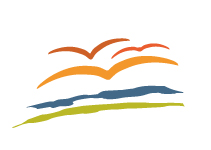A few examples…
TUNISIA
Thanks to the collection of digital archives by a group of civil society activists across Tunisia during the period 2016-2018, an exceptional documentary collection of the 2011 “Arab Spring” was handed over to the National Archives in Tunis in 2017 and used to launch an exhibition at the Bardo Museum in Tunis on 14 January 2019. This initiative is an example of cooperation between civil society and state institutions for the preservation of national memory. It was organised with the support of the Ministry of Culture and under the patronage of former President of the Republic Béji Caïd Essebsi. The library and the exhibition, which are educational, documentary and artistic, was made available to the public and will serve to strengthen scientific research on these developments and to preserve the collective memory, particularly of the young actors of change and their demands.
***
LEBANON
Since the start of the October 2019’s wide-scale protests in Lebanon, a unique independent media platform, launched by young pro-democracy activists, journalists, researchers and designers, who are invested in critical and fact-based journalism, was supported to provide a space for the many voices and demands relayed by the leaderless protests, and to promote inclusive, just and democratic alternatives that can unite Lebanon’s divided society.
***
LIBYA
A unique human rights film festival brought together a hundred participants in Tripoli, to promote peaceful coexistence, dialogue and cohesion. Widely covered in the local media, the organisers screened some 70 films and documentaries from over 15 countries, including 21 Libyan films, dealing with issues of displacement and migration, armed conflicts in the region, and the status and lives of women and children. These films encouraged critical thinking, debate and civic engagement, and opened a dialogue about human rights issues among the general public.
***
TUNISIA
Registered in May 2016, a Lesbian, Bisexual and Transsexual rights association rented offices and employed a coordinator to organise an intersectional feminist space by and for women, questioning gender roles and challenging the hold of patriarchy at the Tunis International Feminist Art Festival ‘Chouftouhonna’ in September 2017. The festival is the first of its kind in the region, bringing together more than 250 women and women-identifying artists from more than 50 different countries to rethink feminism and feminist issues through multiple angles. Based on the success of the event, the association is preparing local campaigns to transfer and enrich the experience from the festival and raise awareness about critical issues facing women in six remote governorates (Gafsa, Kairouan, Sfax, Sousse, Bizerte and El Kef).

